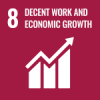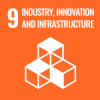Finding a job is not easy, especially during the uncertain economic situation in the country due to the Covid-19 pandemic. This condition is a new challenge for job seekers to seize job opportunities during the pandemic.
Director of PT. Yoda Karya, a state-owned company engaged in engineering and management consulting services, Ir. Delta Hatmantari S. shared many tips for job seekers regarding how to seize job opportunities amid the Covid-19 pandemic. One of them is understanding whether industrial conditions are affected by the pandemic and how efforts are being made to survive these uncertain conditions.
The next tip is improving the curriculum vitae (CV), starting with making a portfolio that is easy to understand, highlighting experience relevant to the position to be applied for, highlighting skills, especially those rarely owned by others, and making an attractive CV design.
Seizing job opportunities during the pandemic can also be done by improving skills, both self-taught and those obtained through online lectures, industrial training, and courses. Then, build a network as vast as possible.
“Besides, be a selective job seeker, not picky,” she explained on Thursday (22/10) in the webinar on Seizing Job Opportunities amid a Pandemic held by UGM and KAGAMA. The webinar invited several UGM alumni to share experiences in the work field.
Delta said opportunities and titles would come with experience and achievement. Salary negotiations will be more accessible when work experience is abundant.
Meanwhile, a culinary businessman, Aliuyanto, S.E., shared his experience when running a business. He mentioned that starting a business requires several main capitals. The first capital is funds that are adjusted to the type and size of the business involved.
“Then, the other principal capital is skills. It is better to jump in the fields that we learn or master so that it is easier to run a business later,“ he said.
The following capital is managerial ability. This management ability is essential to have to manage finances, products, marketing, and business operations.
“Equally important capital is experience before opening a business and negotiating ability,” he added.
The event also presented the Secretary-General of the Ministry of Manpower, Anwar Sanusi, Ph.D. He conveyed a portrait of Indonesian employment. Citing Statistics Indonesia’s data for 2020, it is known that the workforce in February 2020 was 137.91 million people with a work participation rate of 69.17 percent. In comparison, the number of open unemployment is 6.88 million people, with an open unemployment rate of 4.99 percent.
“In terms of the level of education, the higher the education, the greater the potential for unemployment,” he explained.
He said that Indonesia’s workforce is still dominated by people with low educational backgrounds, such as elementary and junior high school graduates. Meanwhile, high school, vocational school, diploma, and undergraduate graduates have not been effectively absorbed in the work field.
“It is a big challenge, so how to encourage them to have additional skills, such as expertise in animation, computers, IT, languages, and others,” he explained.
Source: https://ugm.ac.id/id/berita/20249-cara-raih-peluang-kerja-di-tengah-pandemi



